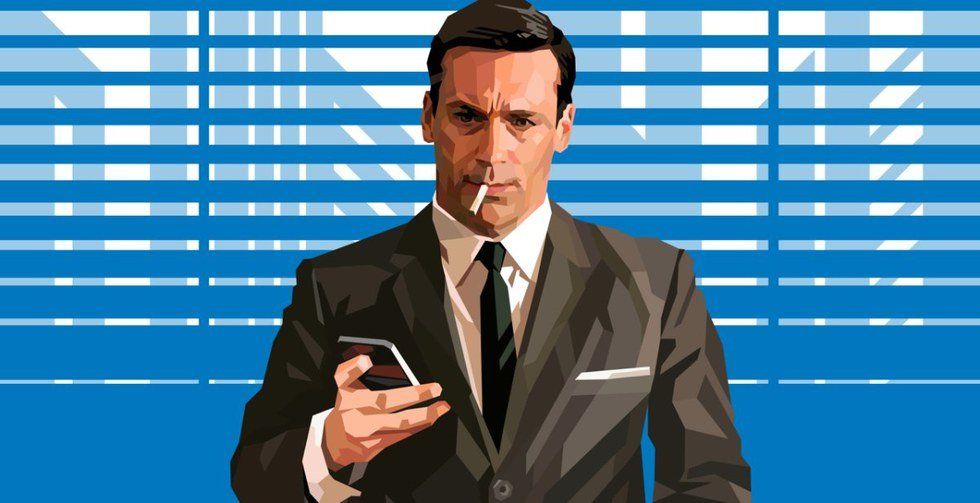Set in 1960s New York City, "Mad Men" is a period drama that centers around the life of Don Draper and his advertising firm. With strong historical authenticity, the show’s setting is brought to life through crisp dialogue and interesting character development. No character carries more intrigue than Don, however, who thrives in his business life while constantly facing familial struggles. "The New Republic" author, Ruth Franklin analyses Don’s character as “Perfectly tuned into the desires of America and entirely out of touch with his own character.” As episodes go by, the audience gains a sense of how most male characters handle their problems. They turn to alcohol, smoking and adultery to the point of abuse. And as the intense life of a 1960s American ‘ad man’ continues, it begins to brew a distasteful image of an ideal man.
It’s easy to forget all the terrible sins characters have committed when they’re cast as creative and talented businesspeople. Although that is precisely what Franklin picked up on as she goes on to say that, “In this way, we are all Don Drapers, obsessed with selling an image rather than tending to what lies underneath.” This is where "Mad Men" uses its historical background to excel. Frequently using non-fictional companies, the firm is tasked to draw up the brand image in the form of an advertisement. We see glimpses of campaigns for women’s cosmetics, Lucky Strike cigarettes, Jaguar, Chevrolet and so on. And as the characters draw up an image that pleases the client, it extends itself to a social commentary on how we see advertisements today. Whether it’s the flair, funny anecdotes, catchy tunes or flashes of a life we aspire to have; advertising is everywhere in the modern world and it has frequently meddled with our values. For example, the standards of beauty have been a focal point for distaste towards ad companies. In the sense that female characters are normally portrayed by small, slimmer women or have been dressed to generate a greater sex appeal. Not only is it objectifying women but frequently, they are not entirely relevant to the product they are marketing. It goes to show that as a society, advertisements have reached such a high prominence in our lives, to the extent that we let it affect our daily discourse.
Speaking of the role of women, "Mad Men" displays a clear subculture between men and women. Business is not discussed around women, all secretaries are women, women take care of the household and all the usual sexist waffle. Male characters are driven by lust, money and clients. However, instead of just using the role of women as a historical showpiece, the writers incorporate the character of Peggy Olson into the firm. She evolves from a lowly secretary to chief copywriter in the space of a few years and serves as a symbol for the increasing number of career-oriented women in the world today. Not only does her journey as a character make for excellent viewing, it serves as an important reminder of the challenges women have faced in the past (and still face today in some places) in their pursuit for a career in a traditionally male dominated environment.
In conclusion, "Mad Men" is just a TV show and as ever, it is only as important as the viewer makes it out be. In my case, I found the show akin to a piece of good literature. With 7 seasons and each episode hovering around the 45-minute mark, the show is paced like a novel as well. Yet after the first couple of seasons go by, interactions between characters start to feel tenser as the gradual buildup pays off. Lastly, I started to gain an appreciation for the setting. As events pass by, it’s hard not to ask yourself, ‘is society any different nowadays?’. Sexism is not diminishing as fast as it should be, the wealthy feed off the opportunities of the less privileged, and racism simply refuses to die. It serves as a testament to the skill of the creators of the show as they keep one story set firmly in the 60s yet also find a way to comment on our progression from that society in the present day. These flashes of reality come embedded within plenty of fantastic quotes the show provides such as this highlight from Don Draper himself.






















